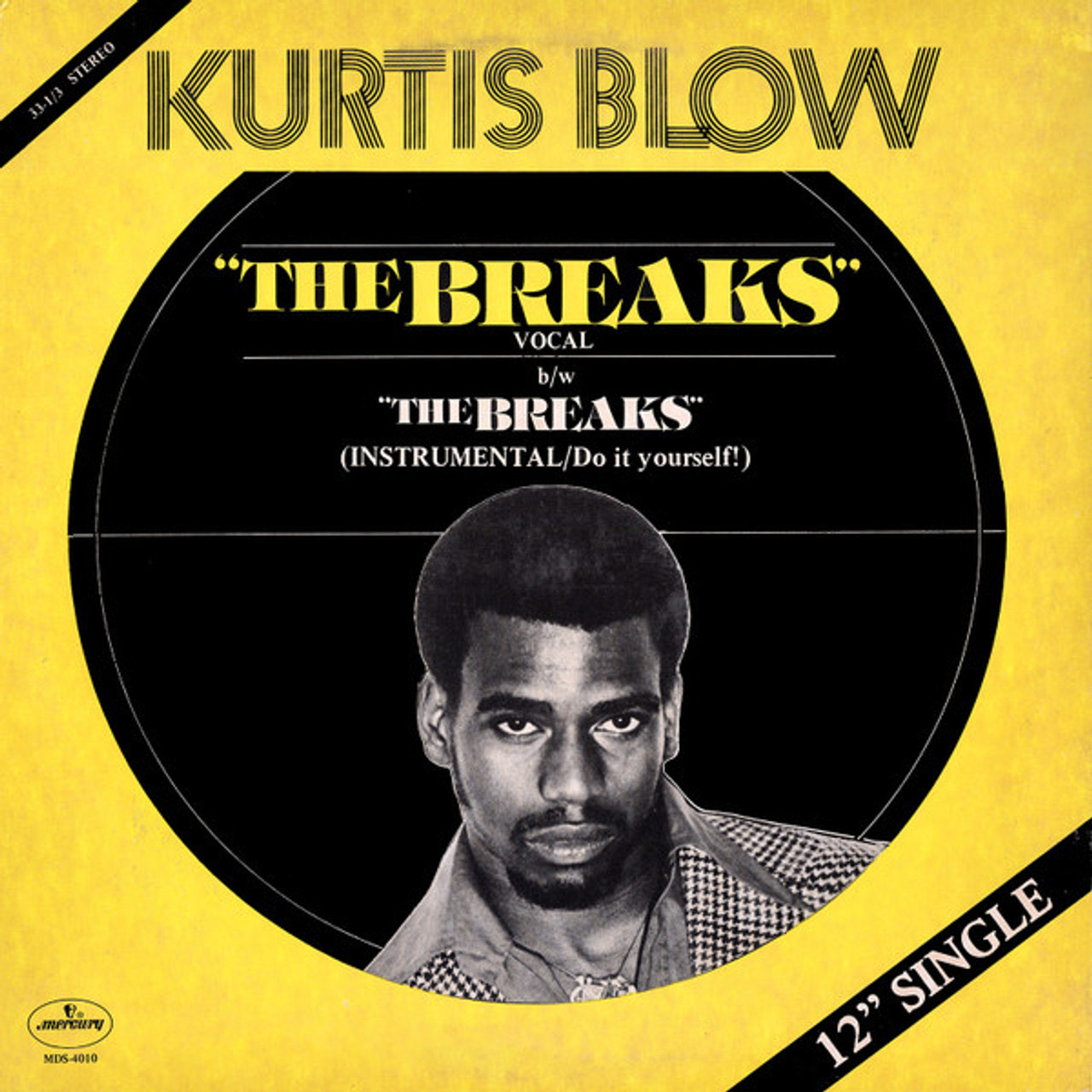Kurtis Blow was barely 21 when “The Breaks” stopped hip-hop fans in their tracks. Released in 1980 as a follow-up to his debut single, “Christmas Rappin’,the song’s funky bassline coupled with Blow’s signature call-and-response style had people shouting “ho!” in clubs around the world. Although “The Breaks” would peak at just No. 87 on the Billboard Hot 100, it made history, becoming the first hip-hop record to earn gold certification from the Recording Industry Association of America (RIAA). Since then, it’s evolved into a classic hip-hop anthem.
We spoke to Kurtis Blow about the creation of the song, the lasting impact it had on the culture, and how it took a young kid from Harlem to superstardom.
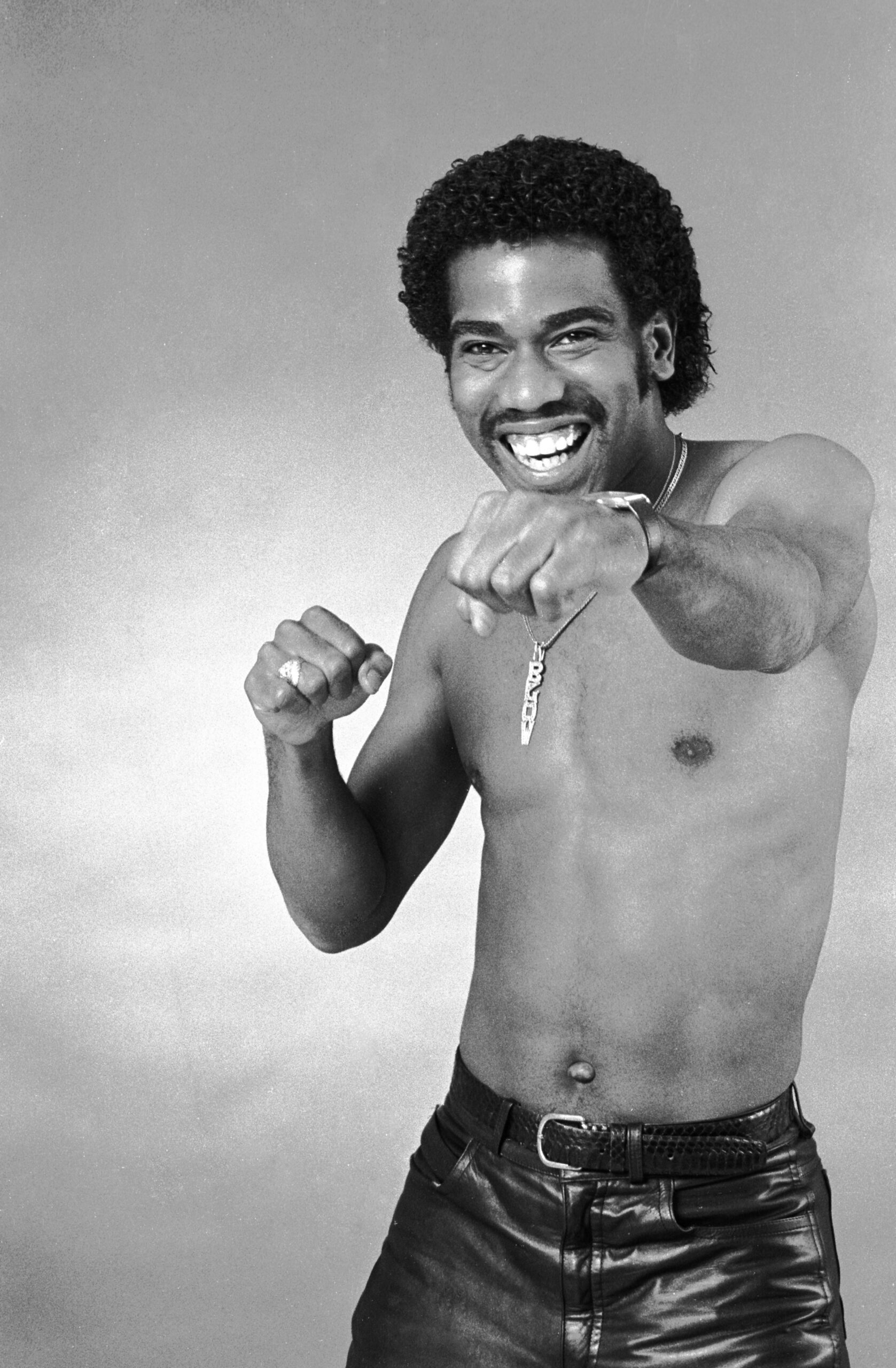
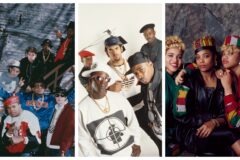
Also Read
The Top 50 Hip-Hop Singles Of The 1980s
These Are the Breaks
KURTIS BLOW: This is a controversial story about the creation of the song, because there are a few versions of the story. But my version that I remember is Russell Simmons coming to me after we had this monster hit “Christmas Rappin’.” And he said to me: “The producers want to know what kind of song you want to do for your next single.” My producers at the time were J.B. Moore and Robert Ford, Jr., so Russell was supposed to ask me and he did. And I said, “Well, I want to make a song dedicated to all the B-Boys, a song with a lot of breaks in it so the B-Boys can do their thing. J.B. Moore, the main writer of my producers, said, “That’s a great idea.” It also ties into another song that came out in the 1920s where the guy in the song says, “Oh hey, Bucko. You say your car got towed away and your lost wife? Yeah, Lester, and you lost your job. Don’t worry, the sun is gonna shine, and it’s gonna be alright. You’ll be okay.” He was basically just stating the good things and bad things that can happen, sort of like Murphy’s Law.
So he said: “Now, we could put that content in the song along with the fact that there are multiple connotations to the word “breaks.” There are brakes on a bus. And he quoted it, “Brakes on a bus/Brakes on a car/Breaks to make you a superstar/Breaks to win and breaks to lose/But these here breaks will rock your shoes/And these are the breaks/Break it up, break it up, break it up.” I said, “Oh my God. That’s the most incredible thing I’ve ever heard!” The connotations, the multiple meanings of that song all wrapped into one, and so we went into the studio, and once we finished the song, you just immediately knew this song was going to be a monster hit. I was so, so pleased.
Say “Ho!”
I wrote “Christmas Rappin’” on my way down to the studio taking the A Train. I was on the west side of Harlem, and the studio was on the west side, on Spring Street. But I wrote “The Breaks” at Green Street Studios. I did “Christmas Rappin’” there, and my whole team, they followed. It was very easy. We wrote it in less than an hour with the big crowd response part, “Throw your hands in the sky and wave ‘em round from side to side/And if you deserve a break tonight/Somebody say alright/Say “ho,” you don’t stop/Keep on, somebody scream.” That was my thing.
I found my signature early because I had that all in “Christmas Rappin’,” that crowd response section. And to hear that on “The Breaks,” it was a monster. Think about it. The clubs, it’s 12 o’clock at night and they’re playing “Christmas Rappin’,” and it gets to the party part, “Throw your hands in the air and [wave] ‘em like you just don’t care,” and everybody in the club is doing that, but I’m not there. It’s not a live show. They’re playing the record—and the people are still doing that. The whole club is screaming, and I’m not there. So the DJ has the hottest song of the night right there because of that crowd response.
First Hip-Hop Record to Go Gold
I knew it was a monster hit but didn’t know it was gonna be the No. 1 hit or go gold. But it did. And I was grateful. My God, that was the best time of my life. I was 21 and had the No. 1 gold record, the first gold record in hip-hop. We documented it everywhere. Everybody was calling me up. I became—and I hate to say this—a superstar. It was the most joyous time I’ve ever had in my entire life. And I was just so happy, grateful, and joyous every step of the way. I was traveling to these countries again, and now I had the No. 1 record in the country. So the crowds were just enormous. I went from about 300 to 400 people to about 5,000 or 6,000 people at the show. It was crazy. I was still a major concert back home: 20,000 on tour with the Commodores and selling out 22,000. Man, listen, it was crazy. A little bit after that, I was selling out arenas by myself, like 20,000 people. I remember I played Miami in 1984. It was James Brown the week before, and he had 17,000 people at this concert. I went there and sold out with 21,000 people—and that’s the Godfather. He’s been doing that for 50, 60 years, and I had only been at it for one year. I couldn’t believe it.
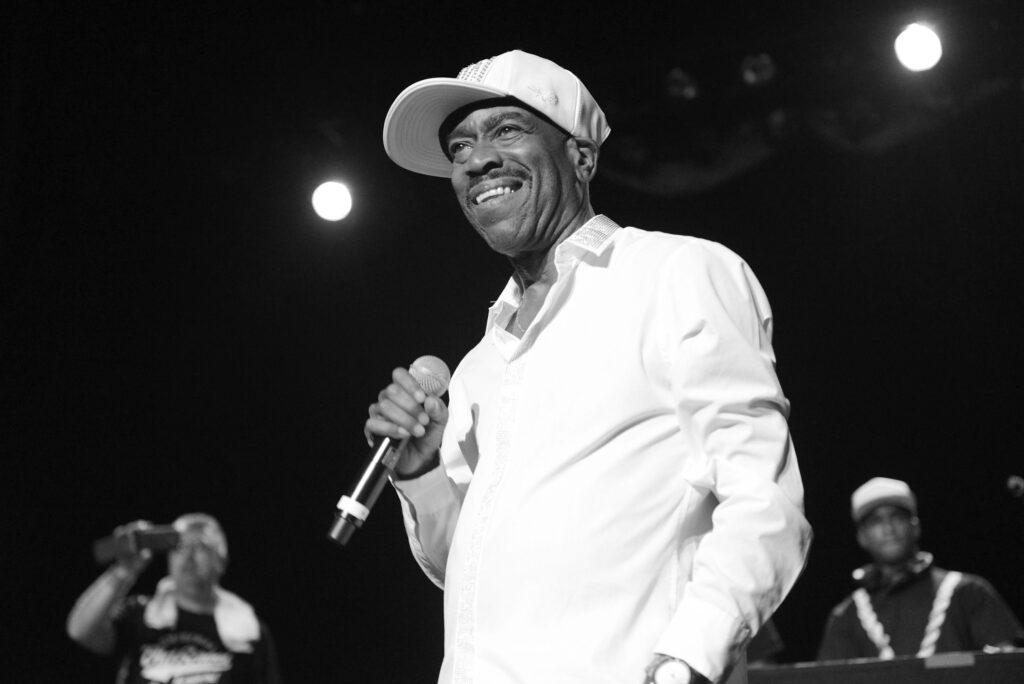
Funky to The Bone
It still feels great to me, and I’ll tell you why. I still think that is the funkiest song in hip-hop, with the guitar and everything. The most incredible part of the song is the percussion—Jaime Delgado, who we borrowed from Ray Beretto. My favorite artist, other than James Brown, is Jimmy Castor and The Jimmy Castor Bunch. Jimmy Castor was widely known as the man. He played every instrument. I went to the High School of Music and Arts because of him after I found out Jimmy Castor went there, right? He was my favorite hero. I loved that “Just Begun” song, and he was rapping on a song called “Hallucination [1974].” When I heard that, I was like, “Oh my god, I gotta do this. I gotta be a rapper, man. This is something that’s going to take off.” So I was inspired to go to music from Jimmy Castor. Those are my heroes.
[Stars singing]
Then Jimmy Castor starts rapping! Dude really raps, and that’s incredible. This whole culture has been spirit-filled. It has been mystical, magical. I mean, a lot of it is creative juices applying all around a lot of times—a lot of people have the same ideas, and they start fighting each other because somebody thinks they bite somebody else or they got bit. “He stole my rhymes!” And, you know, I find that, a lot of times, a lot of the creative juices have been flowing and God gives us this talent and this creative spirit. It is so wonderful and mystical and magical, this culture of hip-hop…just the way that we live. I was just thinking about that—what is real culture? Culture is the manifestation of life. Plain and simple.
Excuse Me, Are You…?
It affected my career, but just the title of the song. It was…it was my break. It’s my biggest song still to this day, and it gave me the opportunity to reach the world. I will be forever grateful to that song. Thank you, “Breaks” [laughs]. But it changed me as an artist in a couple of ways. Number one, I had to adjust to being in the public eye as a real artist, and everything I did was looked at. Everywhere I went, things changed. It wasn’t bad when I made the first video, [but] after I made “Basketball,” that’s when it was really tough for me to go out in public because everybody knew who I was, and I had to sign autographs. Before that song, I had to sign maybe 10 autographs when I went out for an hour. After that, I had to sign about 500, 600. Man, it was crazy.
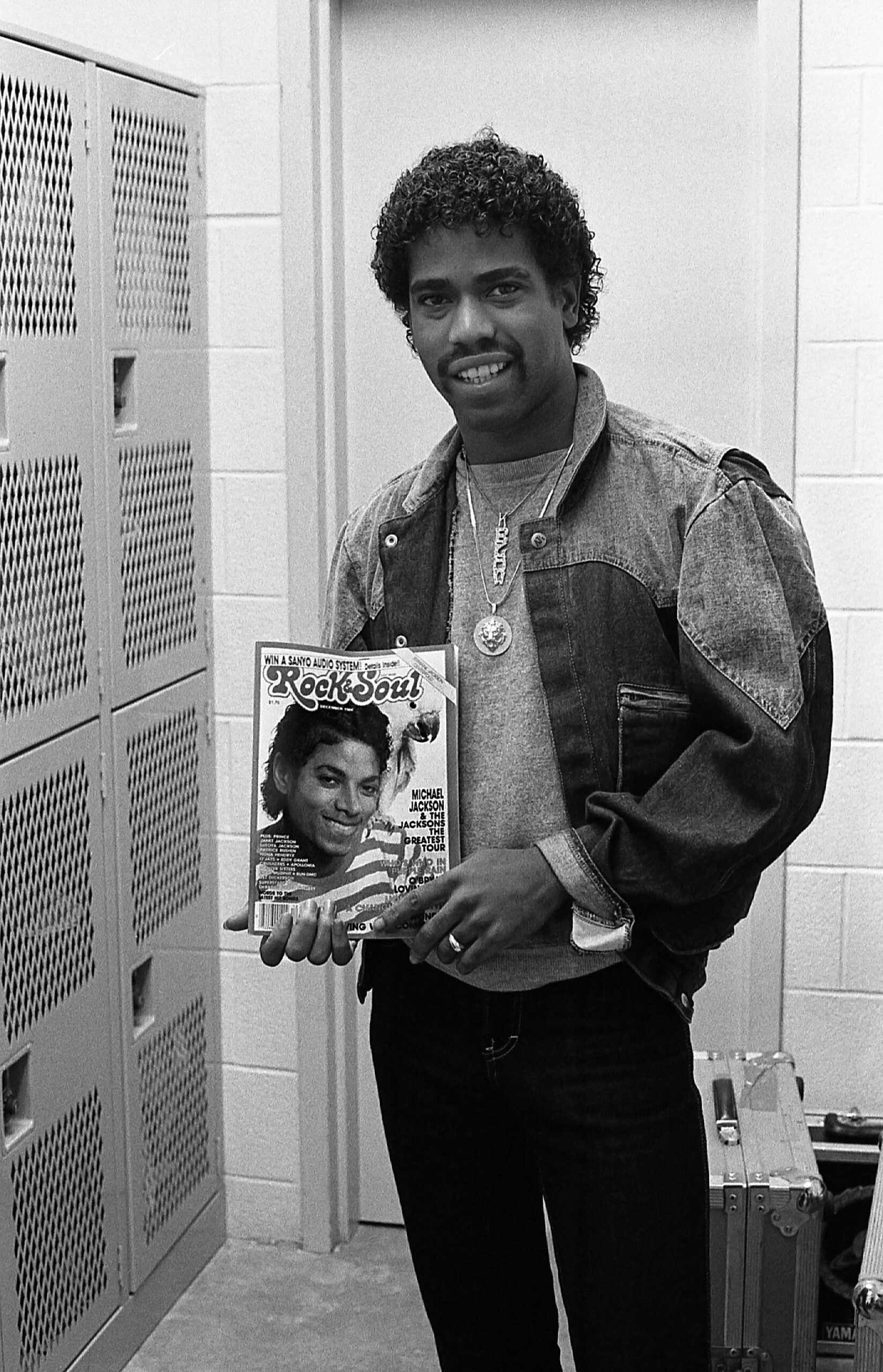
Gettin’ Down on the Good Foot
It did change my life. It changed my life because I had to also adjust to my live show. I had to dance in those breaks. And we had eight breaks in the song, a lot of breaks. I said, eight breaks. So, I had to do eight solos every night. But listen, I was doing somersaults and twists and spins and turns and acrobatics, footwork and backspins. Man…it was incredible. I really got an incredible reputation about being one of those great dancers. I wouldn’t call myself James Brown, but I had some acrobatics going on. It took the level of my show to the extreme, and I’m talking about that crowd response. I didn’t have to say, “Everybody scream!” They were screaming at the dance moves. and I had to adjust to that. That became my mission—trying to be the best entertainer and make people happy.
That was our job as entertainers: to make people feel good when they leave your concert. You sell a lot of records when you have a good show. They go out and buy your records the next day. And we was still selling the records during that time. So to have a good show was very, very critical and crucial to the success of my career and legacy. And I did get that reputation. I went on many tours, and I was a special commodity because there was only one DJ and one rapper. Then I started working with breakdancers later on a little bit. But we used to do shows all the time, me and Davy DMX traveled around everywhere. I remember I broke the Guinness Book of World Records by doing three shows and three different states in one day. They were quick flights. Jay-Z broke that record. Yeah, later on, I think it was 1990-something. He did seven shows in one day in seven different countries.
Telos
I always end with…my telos [Greek word for “purpose”] is to serve God. And how do you serve God? You serve God by serving your fellow man, so I’m out here. I just want to help people, enjoy people, and love on people. That’s my whole thing. You know, my thing with the Hip Hop Alliance as well as the United Coalition For Humanity is love-ism. God is love. So it’s also part of my covenant that I have with God, my agreement that I will preach the gospel and tell everyone from that top of the highest mountain with the loudest voice that God is real, and God is still in the miracle business. What God does for me, God can also do for you because God is able. And I love you. And I love God. God loves me. And you know what else? God loves you.

